IT consultant for the factory and internationalization
I do carry out production software projects in France and Morocco and accompany companies to sell in those countries.
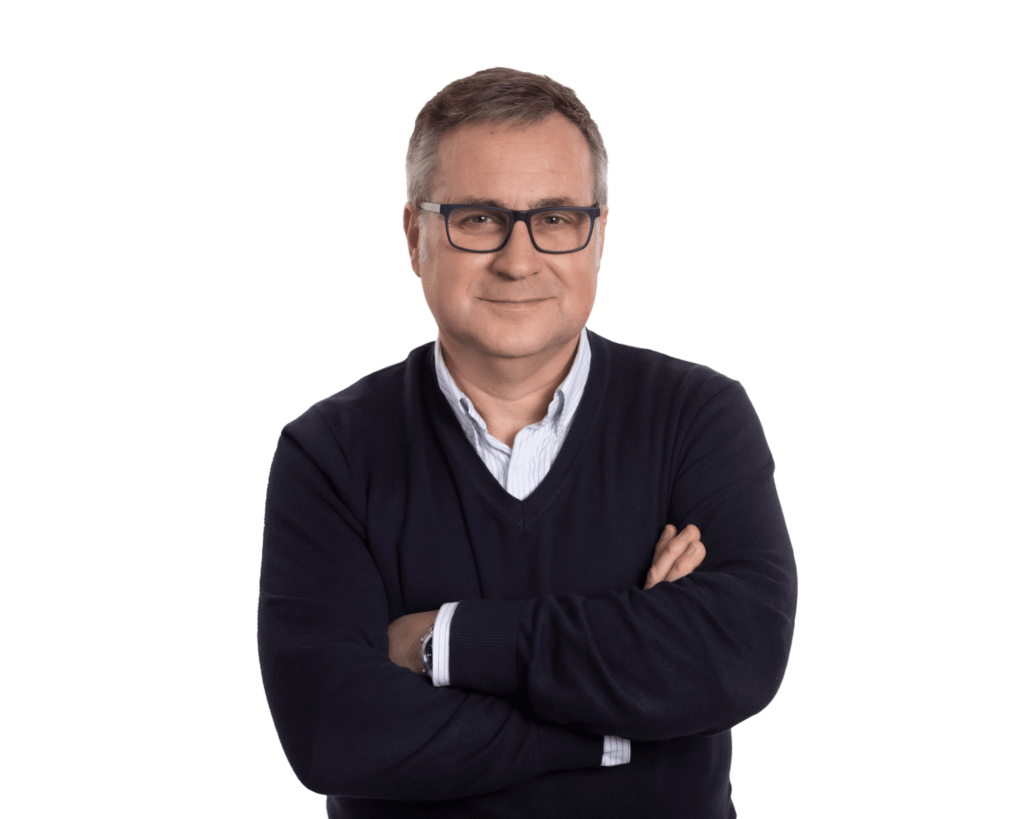
- Software
- Internationalisation
- History
- Industrial cleaning
Jordi de Haro y la internacionalización
Mi primer trabajo en la venta técnica fue en 1990, y precisamente el reto era la apertura de mercado “desde cero” y resultó una labor que encontré apasionante, y en la que yo resultaba verdaderamente brillante, después, bajo la marca Fit95 que nació en el año 2009 he proseguido mi camino como consultor. La marca cubría la promoción del uso de la informática en la fábrica, con la intención de ayudar a las empresas a ser más rentables, coordinando mejor sus medios productivos. Se trataba de proyectos de: control de eficiencia de las líneas de producción, guiado de operaciones, plataformas de informes, integración de operaciones de fábrica con el ERP (software corporativo) el registro electrónico del lote (EBR), y otros dentro de lo que abarca el universo MES (Manufacturing Execution Systems). Más coloquialmente ese tipo de proyectos se identifican Como “Control de Producción”, o control de las operaciones de fabricación. El paso previo a la Industria 4.0
En el año 2013 empiezo a promocionar mis servicios en el extranjero, y en 2015 llegan los primeros proyectos importantes en Francia y Marruecos, aunque también se trabaja, desde entonces, activamente en Reino Unido y puntualmente en Italia. En esa época empiezo a desarrollar un equipo de colaboradores, que reúno bajo el nuevo nombre Fit95jdeharo&assocciates. Curiosamente en esos países aprecian nuestra especialización y capacidad, y lo único que les faltaba era una empresa que pudiera hablar su mismo idioma, a nivel de “entender sus necesidades” y comunicar “en su propia lengua”.
En 2015, a raíz de la realización de un proyecto en Francia, y visto el gran potencial del país vecino, se intensifica el trabajo allí, y por inercia en Marruecos donde existe gran cantidad de empresas francesas. Algunas empresas amigas, reconocen nuestra capacidad para haber conseguido hacer negocio en esos países tan diferentes, y con productos y servicios tan especializados, y nos piden que les acompañemos en la entrada a esos mercados, para la venta de sus productos y servicios, siempre en el ámbito industrial. Es en 2017 cuando comprendemos que nuestro modelo, y experiencia, tienen un gran valor y decidimos crear una nueva área de negocio: internacionalización. Se suma a nuestras diferentes áreas de negocio el negocio familiar, desde el que hacemos servicios de mantenimiento de edificios y plantas industriales (www.olesaamina.com)
I do accompaign enterprises to be more competitive with the implementation of software to coordinate manufacturing operations
Control of production
The difference with other software that we find in the plant is that each company manufactures a different product or service from its competitor, there are not two factories doing the same. This is precisely where the competitiveness of each company raises, its particularity that makes it different from others that produce similar products and/or services. That added value that each one can offer implies that there is no software product on the market, or project, that works for everything, but there are “more or less standard” concepts that help us build customized systems for each need. In this sense, ISA-95 outlines the modules that a based software production control system can have and defines the flow of information exchange between them to guarantee the coordination of manufacturing operations in a computer environment. There is nothing to discover, the guide is defined by experts, and all that remains is to carry out quality projects, with reasonable costs, that invite the industry to invest in computing for its factory. There is a very important path for improvement, whatever the company, without a doubt, and it is worth thinking about computerizing as much as possible.
Traceability
It is of vital importance to know the production parameters, the events that have taken place during the production of a batch, and any of the circumstances that affect a finished product, to guarantee quality and continuous improvement. Automatic data capture offers us the possibility of higher quality information than the one that has been collected manually, the information is precise, in terms of magnitude, and the exact moment in which it occurred is also recorded. If we add a simple and agile information management and exploitation system, we have a powerful tool to identify our points of improvement, either “upstream” or “downstream” and not only to guarantee compliance with the legislation, but also to really have a tool that helps us to analyse possible improvements in our process.


EBR
Electronic Batch Record. Traceability can be analysed for a process, or a series of processes, or for an operation… the final objective is to record everything that happened duriing a manufacturing process, and to do it electronically, since it is more reliable than the information recorded manually, and can also be shared more easily, and also be analysed quickly, with the right tools. We can manage to integrate as much information as we consider that we are going to need, since its knowledge is vital for us. You have to think that technology allows us a lot, if we know how to use it in a way that helps us achieve our goals, also guaranteeing a very short return on investment.
Guided operations
Complying with a recipe, following a manufacturing sheet, and ultimately carrying out a manufacturing operation, or completing manufacturing “without errors”, that is, manufacturing a good product, is sometimes more complicated than it might seem. The creation of a product or a service requires interaction and coordination between the means of production: assets, people, facilities, etc… being able to transfer manufacturing protocols, recipes, and the state of assets to the world of software, allows us to an easy way to create a flow of operations (workflow), which the system will force us to comply with, in reality it will become a guide, “that we cannot skip” and will guarantee a safe manufacturing of a good product.
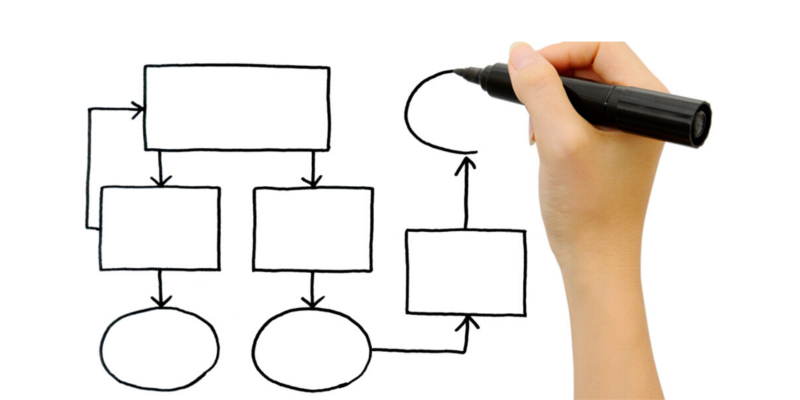

Finite planning
Corporate software manages orders and stocks to manufacture what is sold, or is in the sales forecast. The information on product quantity and delivery time arrives at the factory, and the factory must define where, when and how it will produce the order, depending on: the manufacturing lines for each product, the availability of each of them and capacity etc The corporate software says what to manufacture, but everything is produced in the factory, and the factory must be organized. We receive the request to “manufacture this the current month”, and the factory has to define “what should I do today”.
Systems for control of performance
Efficiency is essential to improve our results. The systems, that measure the basic parameters that influence our performance, offer a very fast return on investment, because any small % that we gain in our efficiency is transformed into profit, money, because “with the same we do more”. One of the most popular indicators is the OEE (Overall Equipment Effectiveness) which has been commonly implemented for packaging lines. Multiply the values of Productivity (line speed) x Availability (time the machine produces) x Quality (good product obtained). You quickly get an indicator for improvement. But there are as many indicators as the nature of our manufacturing require.
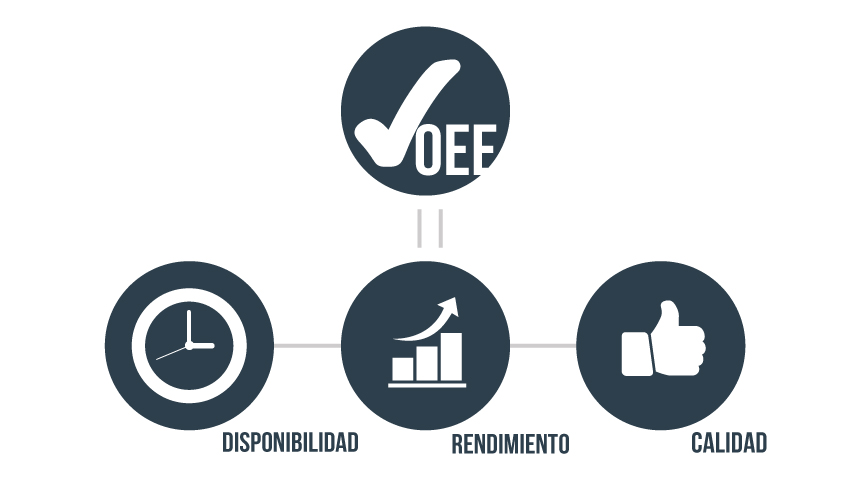

KPI´s (Key performance indicators)
The indicators that we define as important are the ones that must be controlled. Although many will be common to many companies, there are also indicators that are defined based on the nature of our manufacturing, our business, and that may be unique to us. Any variable that we want to analyse can be analysed, by using software in our operations.
System integration
In the factory there are different software that work in isolation, they are “islands of information”. In many cases the exchange of information between them improves our efficiency.
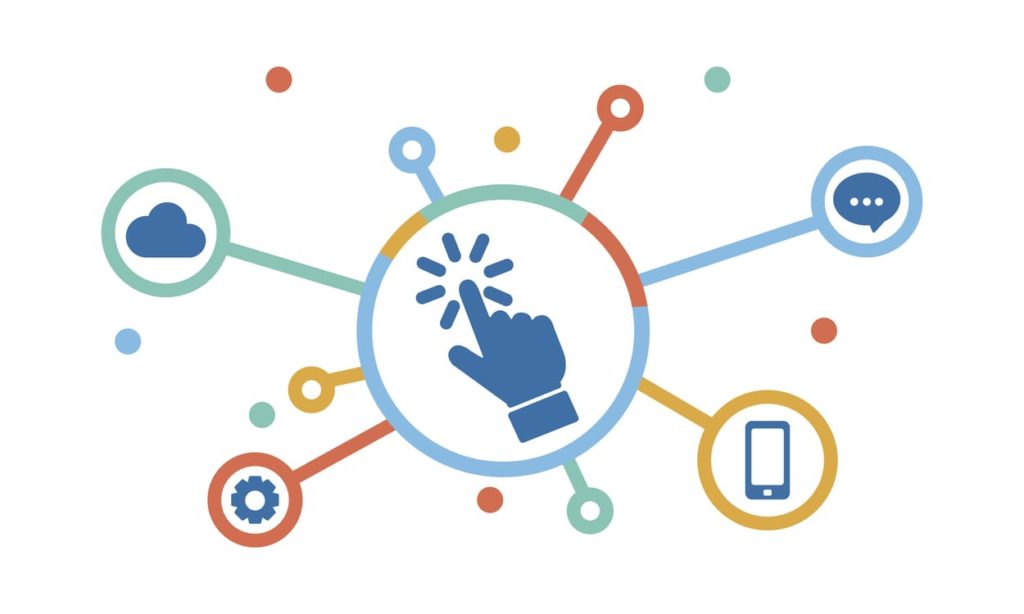
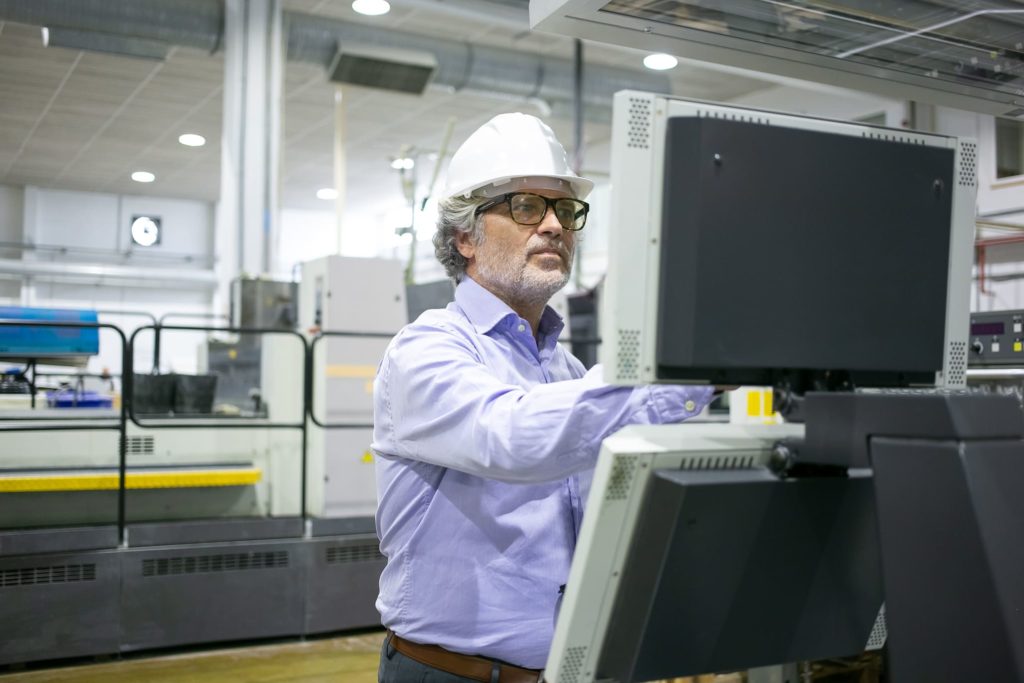
Industry 4.O
My professional career began at the beginning of the 90s with the sale of packaging machinery, later going through the sale of process lines, control system projects, robotics… and control of production systems. My “overall view” of the factory is very good, which, together with my background as an Agricultural engineer, in industry, makes me a specialized consultant. The use of “common sense” in everything that affects my life, and my work, and allows me to propose the best solutions, in terms of efficiency, and the best for the business.
Audits
I am offering my services to analyse the state of your factory and propose the improvements that could be achieved with software in the factory: what to do first, the most urgent, but also draw up a “road map” to continue improving in the immediate future, and in the medium and long term.

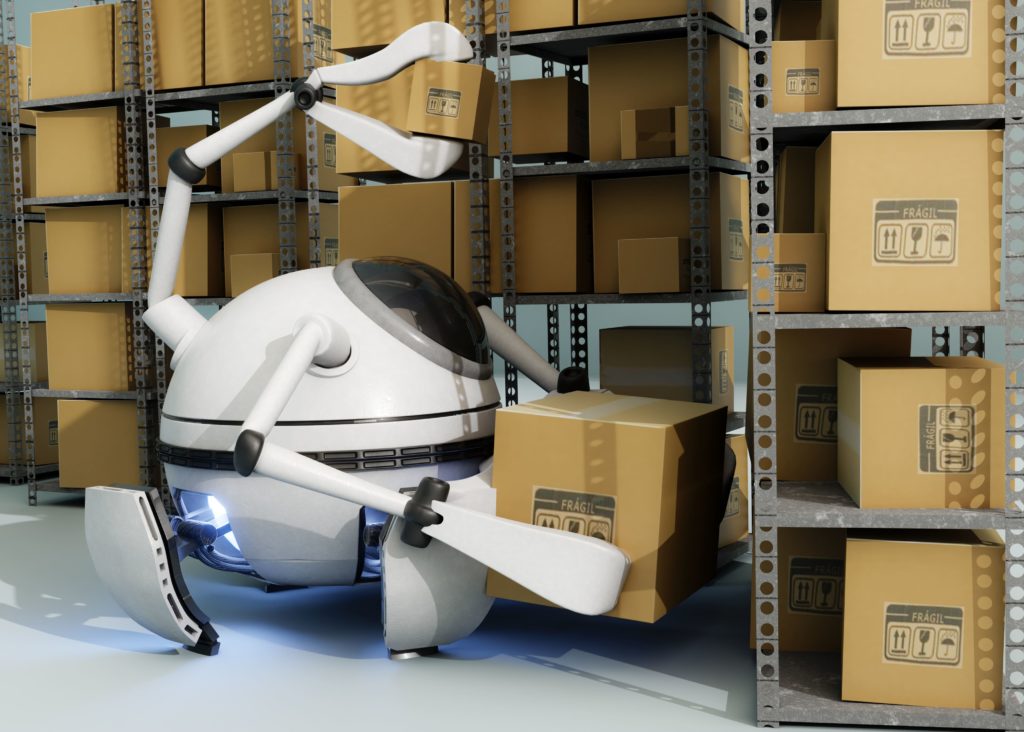
Automation and projects with robots
FAQ'S
The return on investment is very fast, and the magnitude of the project and the related investment is decided by the company, since the improvement can be implemented in phases.
.
Most of the projects take between 3-6 months, depending on the magnitude of the work.
We manage the project in such a way that we require your participation at the beginning, at the time of definition, and then we work very autonomously, requiring your punctual intervention.
In general, these are “non-intrusive” projects, we manage the machine signals and the information from the systems, we work “in parallel”, so the factory can continue working normally.
Most of the standard software packages on the market are already like this, but sometimes some “customizing” must be done. In other cases, market software must be chosen.
Sometimes it may happen that the functionality covered by that existing software is greatly improved by the new system, but we always use what already exists, when possible, if it can be used, and it does not interfere with the new project. We always try to reduce costs.
This is the type of client we normally work for, large groups normally look for suppliers that are similar to them, in size, although we have some client of this type that has hired us to cover a project, in which we were widely superior, by our specialization, to other companies much bigger than us.
We work with leading companies, with which we have different types of agreements, and we also have our own software, and we develop when it is best for the project.
We accompaign the enterprises to sell in france and morocco

We help companies to go abroad
Personally, I have accumulated more than 30 years in technical sales and market development, during the last 15 years mainly in France and Morocco, having also carried out projects in the United Kingdom, Portugal and Italy. Any new country is a challenge for us, and our capacity for analysis allows us to face, with full guarantees of success, any proposal from our clients.
Services for the industry and technical sales
When direct interaction with the client is needed, the meeting is needed, then is when I do act. If the products can be sold over the internet, on an “online” platform, that is something away, we will be talking about another analysis, guaranteeing logistics, payment, etc., but if we are offering services, machinery, value-added projects , if the ideal thing were to be physically in that country, without a doubt in that case the visit before the sale is mandatory, and there we are the best to “sow a seed”.


Have an expert
The advice and commitment of an expert is essential for success. Small and medium-sized companies are not used to having powerful marketing departments, and in the case of having this resource, my personal experience is that in most cases a commercial profile is needed to enter a new market, a manager of “business development” a person who will evaluate the potential of the market, will identify the problems that may appear, and will prepare their solution, and together with marketing will coordinate the appropriate commercial actions at all times, until success.
Phased projects
I mostly face “start from scratch” challenges and find it very motivating and rewarding when success is achieved. The projects go through a few phases, until complete success, which is when we can leave the client with their own structure, maintaining and growing the new market that will already be a reality at that time.


Methodology
I am an engineer, and all my collaborators are specialists in the respective areas, we are all technical consultants, who offer high added value in our services. Personally, after years of selling technical products and services, I have developed and assumed a success-oriented work methodology.
We accompany companies from start to success
Most of the discouragement of companies, when trying to enter a market, comes when realizing difficulties that are appearing, in opposition to the “easier” path that they had imagined.
Getting a new market is usually not an easy task for industrial companies. We are faced with new cultures, different ways of doing business, language barriers, etc.…English is the vehicular language of business par excellence, but if you really want to meet and connect with someone, you better know their language, and we go one step further, we get customers, from each new market, to consider us true “partners”. I do speak English, French and Italian, the rest of the members of my team speak at least two EU languages, one of them English, and our delegate in Morocco speaks German and Arabic.


Which market to choose?
Companies that are thinking of selling in France and Morocco, or are already doing so, but have not yet grown in those markets as expected, may need our collaboration. We help them, from the first meetings of “where we are interested in going”, and “how are we going to do it”, to setting up a structure that can be transferred to an Area Manager, that our client can hire, when we leave. In many cases there are failures because an Area Manager profile is selected, which is not prepared for the opening of the market from “0”, companies invest, time passes and there are no results, or expectations are not met, and work is discontinued, sometimes good professionals are fired, who would have simply fit in to maintain a market and make it grow once it was a reality, but they are not used to working “from scratch”. On many occasions, projects are stopped, without knowing what has been done, “we are lost”, money has been spent, and the feeling is that it has been spent “for nothing”.
Business development
It’s a concept we’ve heard in recent years. It is the opening of a new market, product, or geographic. In a global market, we can reach anywhere in the world, but it’s not that easy. We must analyse profitability, what is the potential of the market for us, how long will it take to consolidate the market, etc. Involving the entire organization is also important, because along the way we may need new tools to adapt to the new market, it will be “extra” work at first. The first phases of the project are critical, since we are going to start a path that would be very sad and uneconomical to have to leave.
I am offering my experience in developing new markets. I have worked exclusively in business development since my first job, and we are already talking about the early 90s. I have always liked challenges, and after years of professional career I have joined a certain natural talent for sales and communication, a working method that guarantees success. We are brilliant. First for sale in Spain, and the last 15 years, for sale in France and Morocco, very intensively, but also having carried out projects in the United Kingdom and Italy.

FAQ's
The client always knows what phase we are in, he can see how the different milestones are being met, and he is fully aware of the pace of work and perceives how the results are coming.
We have a delegate in Morocco, which is basic in that country. We are the best ally. We understand your product, your needs, and we feel the project as ours, involving ourselves 100% from the very beginning. We live our work with passion, and we are brilliant at what we do.
At the beginning we define the project, its phases, we identify the difficulties and how we will overcome them, and the whole team is aware of where we are, the path to follow, and what the prize will be. Each phase carried out is a success, and a step to final success.
Jordi de Haro y la internacionalización
Mi primer trabajo en la venta técnica fue en 1990, y precisamente el reto era la apertura de mercado “desde cero” y resultó una labor que encontré apasionante, y en la que yo resultaba verdaderamente brillante, después, bajo la marca Fit95 que nació en el año 2009 he proseguido mi camino como consultor. La marca cubría la promoción del uso de la informática en la fábrica, con la intención de ayudar a las empresas a ser más rentables, coordinando mejor sus medios productivos. Se trataba de proyectos de: control de eficiencia de las líneas de producción, guiado de operaciones, plataformas de informes, integración de operaciones de fábrica con el ERP (software corporativo) el registro electrónico del lote (EBR), y otros dentro de lo que abarca el universo MES (Manufacturing Execution Systems). Más coloquialmente ese tipo de proyectos se identifican Como “Control de Producción”, o control de las operaciones de fabricación. El paso previo a la Industria 4.0
En el año 2013 empiezo a promocionar mis servicios en el extranjero, y en 2015 llegan los primeros proyectos importantes en Francia y Marruecos, aunque también se trabaja, desde entonces, activamente en Reino Unido y puntualmente en Italia. En esa época empiezo a desarrollar un equipo de colaboradores, que reúno bajo el nuevo nombre Fit95jdeharo&assocciates. Curiosamente en esos países aprecian nuestra especialización y capacidad, y lo único que les faltaba era una empresa que pudiera hablar su mismo idioma, a nivel de “entender sus necesidades” y comunicar “en su propia lengua”.
En 2015, a raíz de la realización de un proyecto en Francia, y visto el gran potencial del país vecino, se intensifica el trabajo allí, y por inercia en Marruecos donde existe gran cantidad de empresas francesas. Algunas empresas amigas, reconocen nuestra capacidad para haber conseguido hacer negocio en esos países tan diferentes, y con productos y servicios tan especializados, y nos piden que les acompañemos en la entrada a esos mercados, para la venta de sus productos y servicios, siempre en el ámbito industrial. Es en 2017 cuando comprendemos que nuestro modelo, y experiencia, tienen un gran valor y decidimos crear una nueva área de negocio: internacionalización. Se suma a nuestras diferentes áreas de negocio el negocio familiar, desde el que hacemos servicios de mantenimiento de edificios y plantas industriales (www.olesaamina.com)
ABOUT JORDI DE HARO
Jordi de Haro (L’Hospitalet-Barcelona 1964) is a consultant for factory Information Systems projects, and internationalization in the industrial field, since 2009, exploiting FIT95 brand. Agricultural Engineer (1987) specialized in the food industry. His professional career has focused on industry: from the sale of capital goods, packaging machinery, and production lines, through automation systems and production control systems, for the food, pharmaceutical and chemical industries, process industry, for continuous and/or discontinuous processes, and industry in general. From its beginnings in the company LAPEYRA & TALTAVULL (Barcelona) dedicated to the representation of leading European manufacturers of packaging machinery, passing through ABB in its Robotics Division in Sant Quirze del Vallés (Barcelona) and EMTE SISTEMAS, in its automation systems division for industry, or the extinct ASESA SISTEMAS, has accumulated the experience that, together with his talent, allowed him to start his own business in 2009, until today, when it has various divisions: factory software, and internationalization, and the family maintenance company for buildings and industry. (www.olesaamina.com)
Experience
1987
Degree in Agricultural Engineering, specialized in food industry. From Lapeyra & Taltavull dedicated to the representation of leading European companies, packaging machinery manufacturers, passes to ABB in its robotics division and EMTE SISTEMAS, in its division of automation systems for industry and to ASESA SISTEMAS.
2009
Consulting on IT projects for the factory and internationalization as a free-lance, and through his own consulting company FIT95. He leads projects for control of the performance for production lines, guided operations, reporting platforms, integration with ERP, EBR, and others within the MES (Manufacturing Execution Systems) universe.
2013
2015
As a result of carrying out an important project in France, the presence in the neighbouring country is intensified, and motivated by different synergies, also, in Morocco, where there are a large number of french companies
2017
A new business division is created, the Internationalization area, caused mainly by the high demand for consultancy requests and assistance in entering the French and Moroccan markets for the sale of products and services, always in the industrial field.
2023
In addition to the services of consulting and the realisation of projects, a new division has been added to the family cleaning company: comprehensive maintenance for food industries. It not only includes the cleaning of buildings, but also the cleaning of process machinery (kneaders, conveyors, tables and workstations…). As an agricultural engineer, he led this new division with a total guarantee of success.
Skills
- Market opening from scratch.
- Specialization in the technical sale of industrial projects
- Deep knowledge of French and Moroccan markets
- Extensive network of partners
- Specialization and capacity on the field and in the same language.
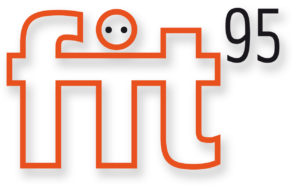
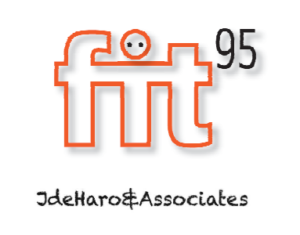

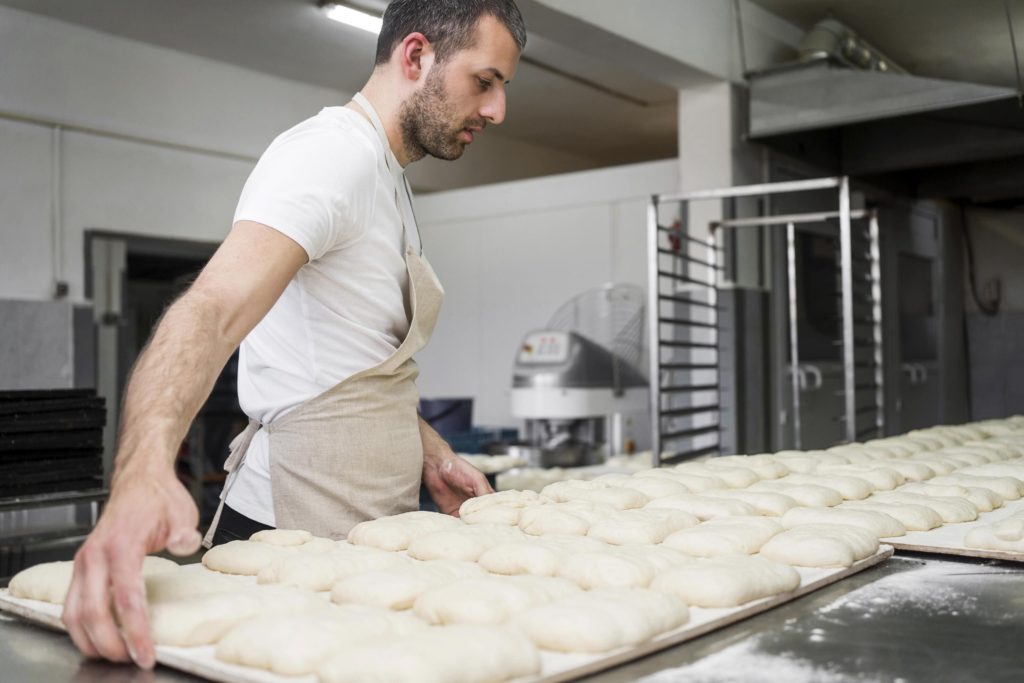
Industrial cleaning
We clean buildings, warehouses, and factories. For the food industry, in 2022 we expanded the activities to the cleaning of production equipment: mixers, conveyor belts, trays, etc. We study any requirement of our clients in the field of industrial cleaning.
As an Agricultural engineer, I find myself especially comfortable working in the food industry, but my professional experience has also been in the chemical and pharmaceutical industries, and we respond to any request you may have.
Committed to efficiency at work, we feel the client’s needs as our own, and in all cases, we become part of our client’s project.
This work is carried out by the family cleaning company, which carries out its activities locally, specifically in the Baix Llobregat region and its borders, in the province of Barcelona.
Based in Olesa de Montserrat, the company OlesaAmina Serveis de Neteja™ led by Mrs. Amina Amersid, shares Technical Management with myself, and increasingly faces new challenges in the field of cleaning.
Contact
You can call me or send me an email
Phone number
+34 607 386 884
hola@jordideharo.com
